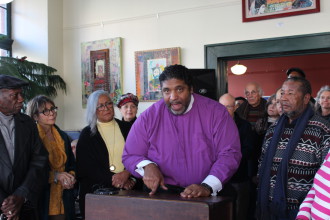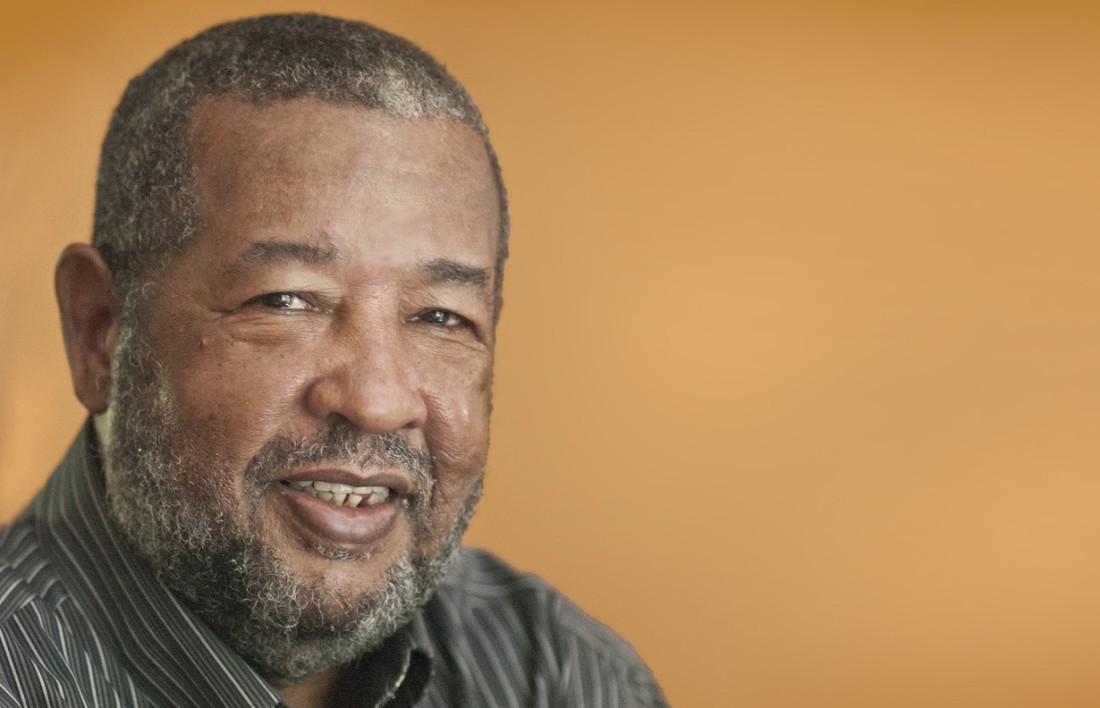Isaac Coleman was many things: a civil rights activist, community leader, recent candidate for the Buncombe County Board of Commissioners, Democratic Party stalwart, nonprofit founder and leader, champion of education and the environment, father and friend. From his involvement as a community organizer who worked with the Student Nonviolent Coordinating Committee in the 1960s to his ongoing work to make Buncombe County a more equitable community, Coleman’s life was devoted to the pursuit of justice.
According to the Asheville Buncombe County chapter of the National Association of Colored Persons, Coleman has died. As recently as the March 15 primary for the Buncombe County Board of Commissioners, in which he was a Democratic candidate, Coleman was actively involved in local politics and public affairs.

Coleman was named one of Asheville’s Living Treasures in 2014 in honor of his lifelong contributions to the community. He was also a recipient of the Martin Luther King, Jr. Arc of Justice award and the Asheville City Schools Foundation Champion award. He was a co-founder of Just Economics, a local economic advocacy group, and Read to Succeed, an intensive reading tutoring program in the Asheville City Schools.
After moving to Buncombe County in 1971, Coleman become a city housing inspector, a position he held until his retirement in 2000.
Below are some recollections and reflections Coleman shared in December last year on Dr. Martin Luther King, Jr. and his legacy (What would MLK say?, Jan. 13):
“During the civil rights era, I was a part of the Student Nonviolent Coordinating Committee. There were some differences between our group and King’s group. We were in favor of long-term involvement with the community, rather than just coming in and having marches and so forth. I was there in Selma, not during the bridge incident, but later that evening. I had an opportunity to hear Martin speak. … I was in the balcony of the church. He had me inspired so much I was about to jump out of that balcony.
“I saw nonviolence as a strategy, not as a way of life. I found myself in a situation in Mississippi one time where nonviolence was my best way out. I was facing a lynch mob. The whole town had just stormed the jail, busted the windows out, all kinds of crazy stuff going on. The police attacked me and hit me in the mouth and smacked me and beat me. My only tactic was to be submissive and to not fight back. If I had fought back, I probably wouldn’t be here today. Nonviolence as a tactic was really effective.
“Later on in his career, Dr. King was more and more focused on the peace movement and the labor movement. We got the right to go in the restaurants and to go to the movie theater. But then we reached in our pockets and found out that we didn’t necessarily have the money to do those things. So employment, jobs and things like that became a big issue.”
If King were alive today, he “would be concentrating on education. We should all be concentrating on education, because we can’t really have a democracy without an educated populace. The more uneducated people that we have, the less democracy we have. So I’m sure he would be talking about ‘How can we move education forward and make it available to all people?’
“We shouldn’t just look at the legacy and think that we have arrived. We haven’t arrived at anything, really: Things are better for some people, but they are not better for all people. And, like Dr. King says, until things are good for all people, things are bad for all people. We need to keep that in mind.”
Other coverage of Isaac Coleman:
Candidate for Buncombe County Board of Commissioners, District 1
Letter writer: Coleman has been pioneer in education, environment and jobs




What a loss for our community. We need more Isaacs, not fewer.
My condolences to his family.